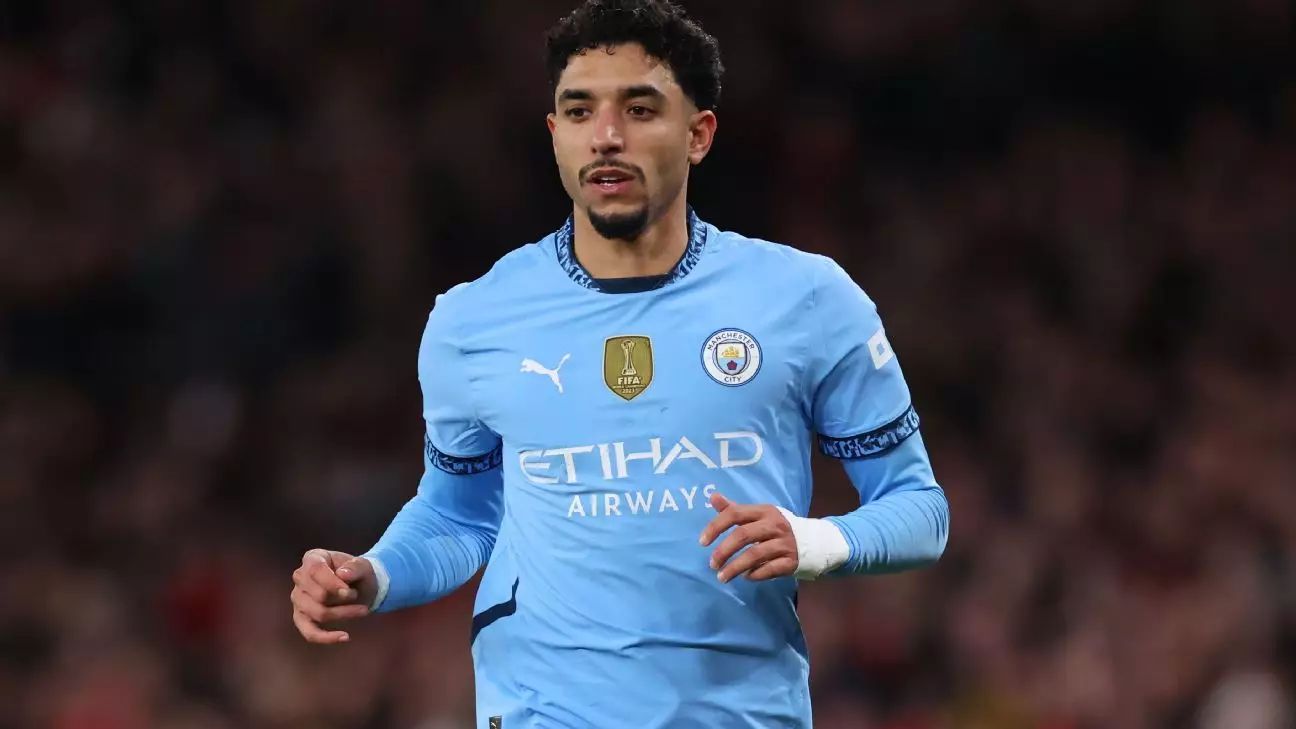The January transfer window is always a busy and lively time in the football world, with clubs scrambling to make strategic moves that will bolster their squads for the remainder of the season. This year, a significant spotlight was cast on African players, many of whom engaged in high-profile transfers that not only caught the attention of fans but also showcased the growing influence of African talent in European football. As teams finalize their rosters, some deals spark excitement while others leave a sense of disappointment.
Among the transactions that shook the footballing community was the striking €75 million transfer of Omar Marmoush from Eintracht Frankfurt to Manchester City. This acquisition stands as the second-most extravagant deal in January, trailing only behind Jhon Durán’s move to Al-Nassr, which made headlines for its eye-watering fee. Marmoush, now 25 years old, is seen as a vital addition to Pep Guardiola’s squad, which is undergoing a significant transition. Despite facing challenging moments, such as a 5-1 defeat to Arsenal shortly after his arrival, Marmoush’s impressive statistics from the Bundesliga indicate a player primed for success in the Premier League. With 15 goals and nine assists in just 17 appearances, his early form suggests that he might not merely adapt to the demanding nature of English football but could potentially flourish.
However, concerns linger regarding whether Marmoush’s talents can be harnessed amid Manchester City’s current flux. Long-term success in such a high-stakes environment often requires not only individual brilliance but also team coherence—a factor that might take time to cultivate. The assessment of his transfer will extend well beyond immediate performances, making it a project worth monitoring in the seasons to come.
Another noteworthy deal featured Gabon international Mario Lemina, who transferred to Galatasaray for a mere £2 million. This move reflects a savvy piece of business, particularly considering Lemina’s difficult tenure at Wolves, where he faced the disappointment of losing his captaincy amid the club’s relegation struggles. Now at Galatasaray, he finds himself in a much more supportive setting under the management of José Mourinho, leading the Turkish Super Lig. The potential for Lemina to rekindle his form remains high, especially with the club currently positioned favorably in the title race.
Additionally, Romain Esse’s transfer from Millwall to Crystal Palace paints a picture of the Eagles’ commitment to investing in young, talented players. Esse, known for his agility, dribbling, and sharp footballing acumen, represents a promising prospect for Crystal Palace, aligning well with their strategy of refining young players. Manager Oliver Glasner’s confidence in Esse is indicative of a broader approach at the club—one focused on nurturing new gems to supplement their established squad.
In a rare move for a goalkeeper, Brice Samba made headlines with his transfer from RC Lens to Stade Rennais. Samba, often underappreciated in discussions about Europe’s best goalkeepers, is now poised to showcase his skills as Rennes’ new number one. The shift not only amplifies his career prospects but also enhances Rennes’ aspirations to sidestep relegation dangers. His ability to command the defensive line and make crucial saves will be vital as the team seeks stability moving forward.
Meanwhile, other notable footballers used this window to seek new challenges. Emmanuel Dennis’ loan to Blackburn Rovers could revitalize his career, while Maxwel Cornet’s transfer to Genoa opens new avenues for a player whose time at West Ham was static. Jeffrey Schlupp’s move to Celtic also highlights the interconnected nature of current transfer trends—it benefits all parties involved.
Not every rumor translated into action during the transfer window, as illustrated by Victor Boniface’s unsuccessful negotiations with Al-Nassr. This situation raises questions about player aspirations; while lucrative offers abound in the Middle East, the allure of European football still retains supremacy for many. Boniface, whose strong performances at Bayer Leverkusen have attracted interest, might find that remaining in Europe could yield even greater opportunities in the future, especially if he continues to develop his skills.
Yet, not all missed opportunities sting equally. Bryan Mbeumo’s high-profile links to clubs such as Arsenal and Manchester United subtly indicate the increasing recognition of his talent in the Premier League. Although a winter move did not materialize, Mbeumo’s consistency in performance could warrant future attention, particularly as clubs evaluate their attacking options moving forward.
Overall, the January transfer window has underscored the growing prominence of African players within the European football sphere. With numerous players grabbing significant moves and others showcasing their potential, it’s evident that African talent will continue to play a crucial role in shaping the future of the sport. As scouts and managers keep a keen eye on emerging talent, it remains to be seen how this influx of players will alter the dynamics of top-tier leagues and contribute to their respective teams’ successes. The journey of these stars is just beginning, and their impact will certainly be felt in the coming months, as they strive to make their marks both on and off the pitch.

